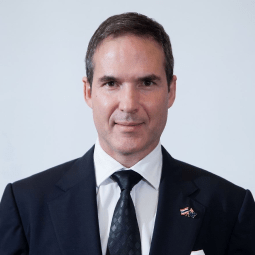As I enter another week of isolation, toiling from home while trying to emulate a normal ‘work’ environment, I feel an overwhelming desire to physically reconnect with family, friends and colleagues. While technology has allowed me to remain ‘connected’ while at work, its allure and, more importantly, its effectiveness is starting to fade.
Yes, I miss the commute, the interruptions and the walk to get a coffee at the office. Who would have thought that such mundane events in the course of a workday have had such an impact on my state of mind and well being? On reflection, and there is a lot of time to do that, I expect that such interactions created an opportunity to connect in a very basic way that allowed me to feel part of something larger. It makes me wonder what would happen if this isolation was to continue. Would I progressively become more agitated and look ever more fondly on those inconsequential events of the past?
But with the knowledge that all things pass, I also wonder if I will simply fade back into old work routines and habits, comforted by those very same inconsequential events when my forced isolation is over. Will the three months of Covid be assigned to the dustbin of history and cast to a far corner of my mind where it will be tamed? Is my desire to get back to normal so strong that I and others will miss an opportunity – an opportunity to harness the positives from the last few months and reimagine the way we work?
I think not. I believe that this crisis has fundamentally changed me and many others. I have been forced as an employee, manager, shareholder and stakeholder to reevaluate the way I work alone and with others; to ponder what work will look like after this crisis. While I may long for what I had, I have also been exposed to the new, and the possible, when it comes to the way I work. I doubt I will easily walk back from those experiences.
I have fundamentally reevaluated what exactly it means for me to be at work. Yes, I had options to work flexi-time, work from home, part-time work, casual work – but those choices revolved around attendance, or not, at a specific place: an office, restaurant, school, hotel etc. In most cases the choice wasn’t reimagining the way I actually worked, just where I worked from.
The need to self-isolate and work remotely has forced me – and the entire business ecosystem – to go further. Yes, I can work remotely, but I and others are now questioning not just why we have to be in a certain place to work, but how and what work we are undertaking. I have experienced very different professions – designers, accountants, lawyers and teachers – working remotely during this crisis and I have found that the boundaries to the way they work, and work with me, are being questioned.
We seem willing to try new things and make fundamental changes that may stay with us for decades to come. Why we do things in a certain way, are the things we do actually needed, do they have the desired outcomes, and can we do things better? This new-found desire to question and reinvent is a powerful business tool. Companies such as the one I work for spend much time, energy and money cultivating culture and yet, in a matter of months due to reasons beyond our control, the new norm of asking why is here and it has led to some extraordinary business outcomes.
I would never have thought that an entire nation’s primary and secondary education – private and public – could be provided remotely. My son now starts his Australian school day from our study in Thailand. Who needs bricks and mortar schools? Do we need as many? Do we need them in the current format? Do students need to attend five days a week, and do teachers have to work locally? The possibilities are endless.
Admittedly it’s far from perfect, but it can be done. In fact we have done it, and done it on the fly. Who is to say that with more investment in technology and, with experience, that a new norm couldn’t be established in education, or any other industry for that matter? No profession or industry is untouched by this crisis. Essentially, we have been forced to question everything we do, the culture of why, and in many cases we have found better ways or at least opened up the possibility of such.
But this is only the first step. While I have started to question, adapt and hopefully improve myself during this crisis, essentially reimagining the way I work, the key will be my ability to cement these changes beyond the crisis. If the culture of why is going to permanently change my work paradigm, I need to commit to two fundamental and symbiotic drivers: technology and the culture of asking ‘why?’.
It’s clear to me that companies that invested in communication and connectivity technology prior to the crisis have fared better than most. They were hard-wired for remote work and their teams were more in tune with working via technology. They were quick to adapt to the new realities of remote working and were able to remain connected, not only internally, but also externally with clients.
Those companies had committed to digital transformation – consultants’ much-loved buzzword for the last few years. We all recall being inundated with consultants and advice to transform and digitalise: how the value of that advice now rings true. Companies that adopted remote cloud and app-based systems that seamlessly connect operations, human resources, customer service, finance and marketing were able to move existing operations quickly to work remotely. But the technology also allowed companies and employees to be innovative and be flexible as new challenges arose. They could change with the times – fast moving times – and remove unwanted and unnecessary bureaucracy that had made operations rigid and fixed when bound by old technology.
Prior to Covid, I recall that the greatest barrier to digital transformation was that the business ecosystem in which we all operated didn’t value or support true digital transformation. Simply, most early adoptees were motivated by internal rather than external reasons. Organisations didn’t see the purpose or value of investment in digital transformation technology – it meant little to them. Essentially, digital transformation was simply doing what companies and employees had always done, but just using different technology. During Covid that changed. The culture of why is everywhere along the business chain and now almost everyone is willing to change or at least consider change, if it adds value. Digital transformation allows us to add that value, fast and if we are to lock in and then drive this value further, we will all need to double down on investment into technology post Covid.
Second, I need to ‘lock in’ the culture of why. Investing in technology hardware is only part of the answer and, perhaps, the lesser part. My forced isolation has meant that I, and probably many others, have become more comfortable, confident and capable when it comes to using technology in ways I hadn’t previously contemplated. Why should that stop post-Covid? Will I and others not continue to ask why and seek better ways? Will the company for which I work allow me to continue to ask the questions needed, and will they value it as they have during the Covid isolation?
If I want to lock in the culture of why, as a manager, I need not only to challenge myself but I’ll also need to recognise and reward those who continue to challenge me and the status quo. Those who see the possibilities and opportunities to do things differently should be lauded as champions of the new way. I need to pull down barriers and be open to alternatives to our traditional methods of working. It took an existential threat to unleash the culture of why in me and the business community and, while there is a need to invest in technology, there is a symbiotic need to empower people and capture this new dynamic: the culture of asking why.
As I look forward to the easing of this crisis, I wonder if our collective isolation hasn’t forced a democratisation of the way we work. The technology that has provided access, transparency and connectivity has shown us, over the past weeks, that position and status have mattered less. We are all in this together, so we all contributed to asking why and to making things work, and work better. Maybe it will only be the Covid way of things, I hope not! I hope we seize on this opportunity to reimagine the way we all work, I know I will.



